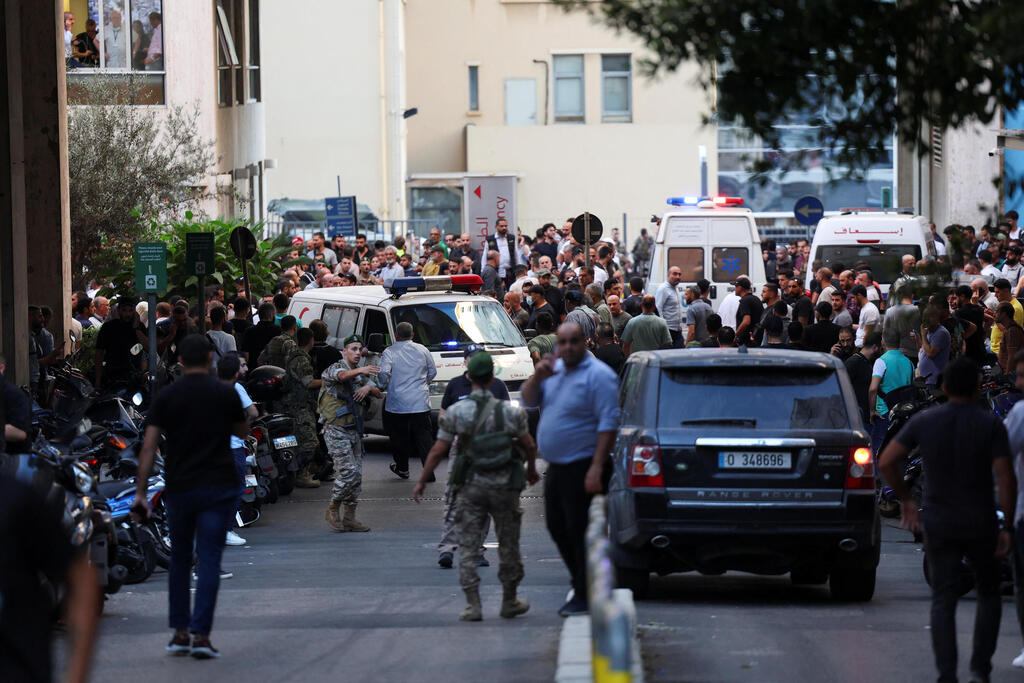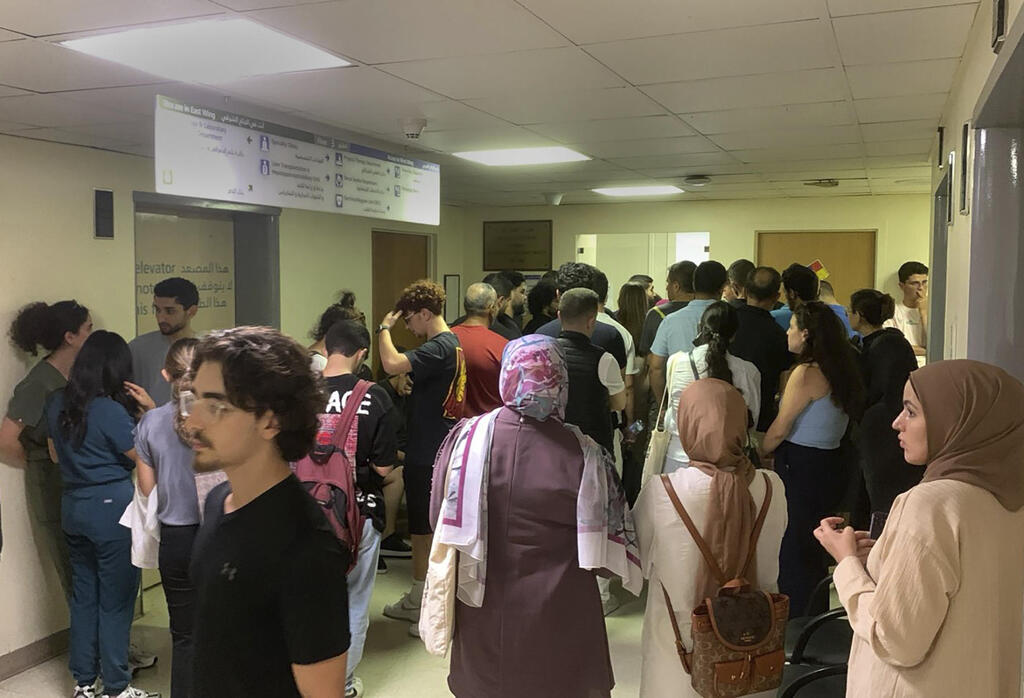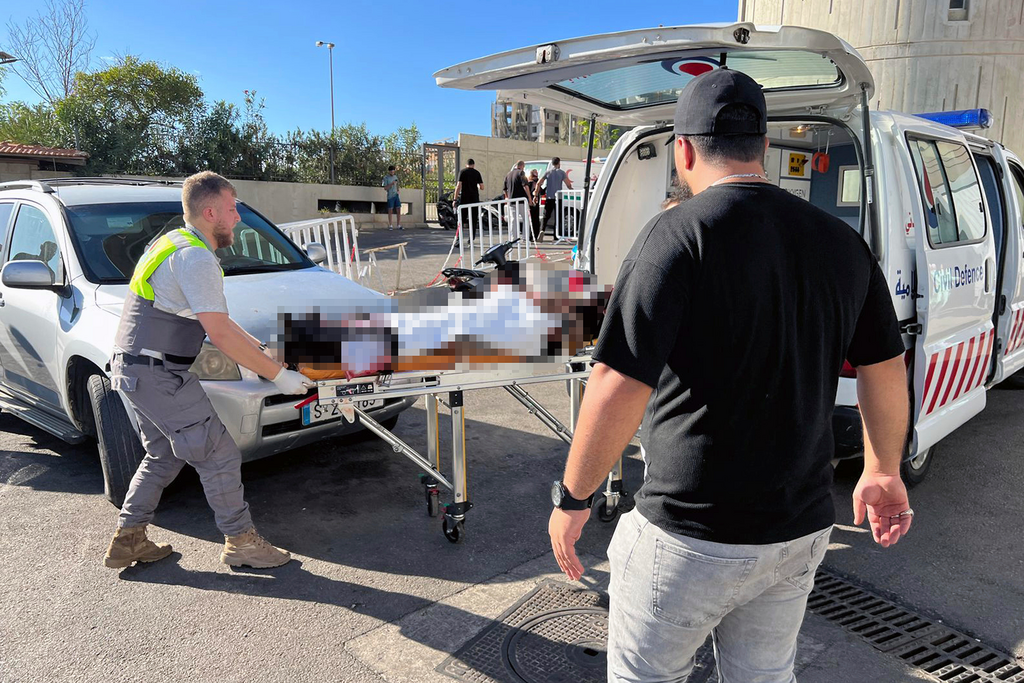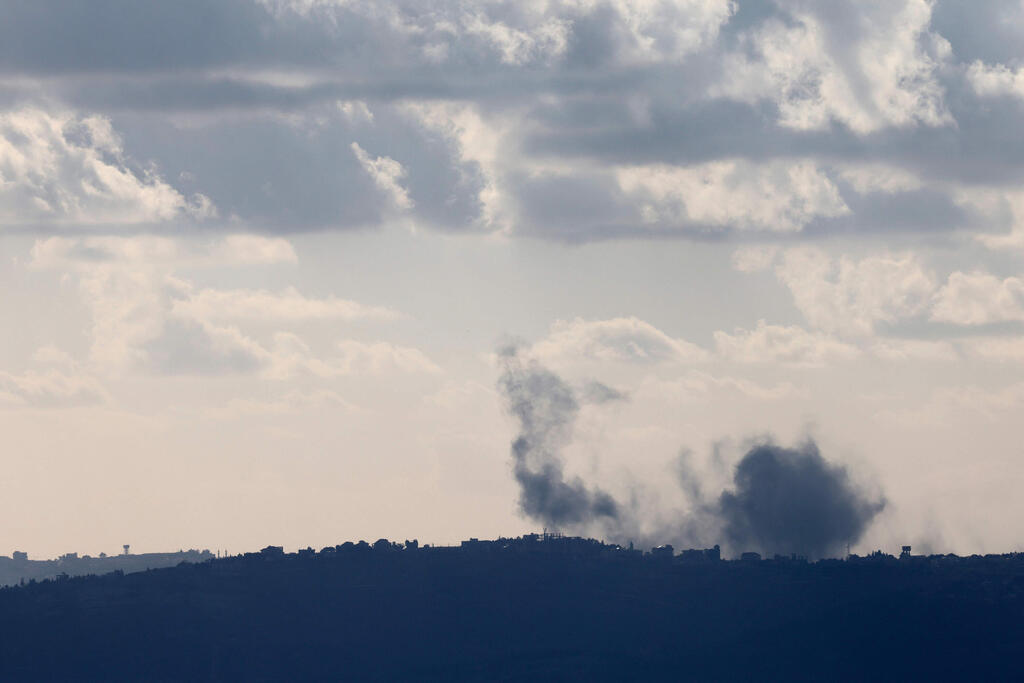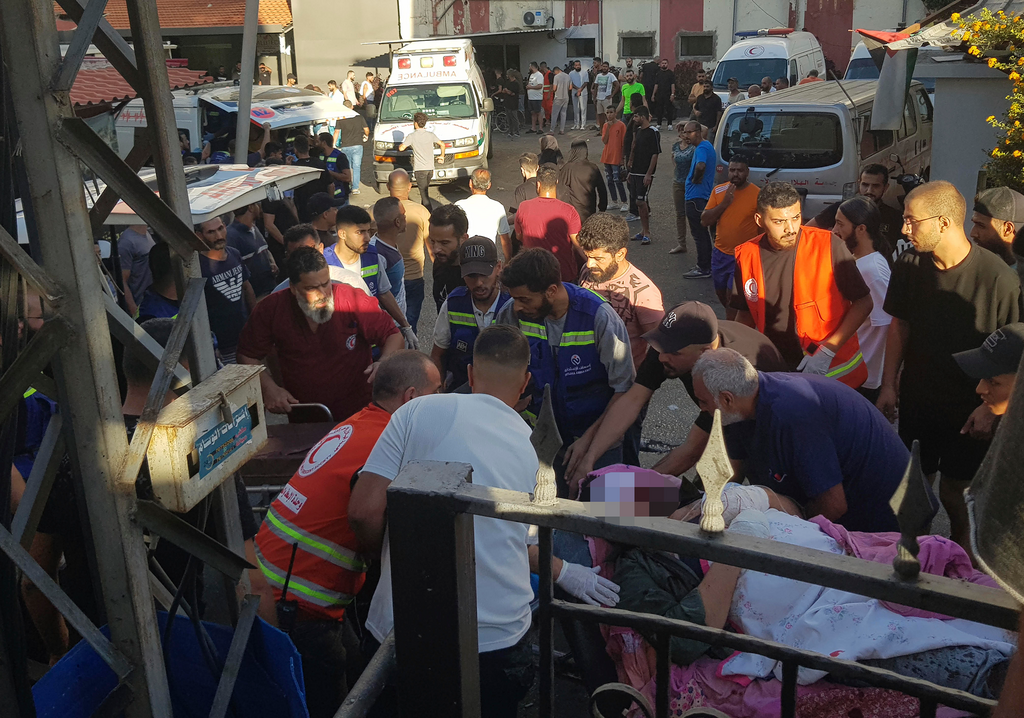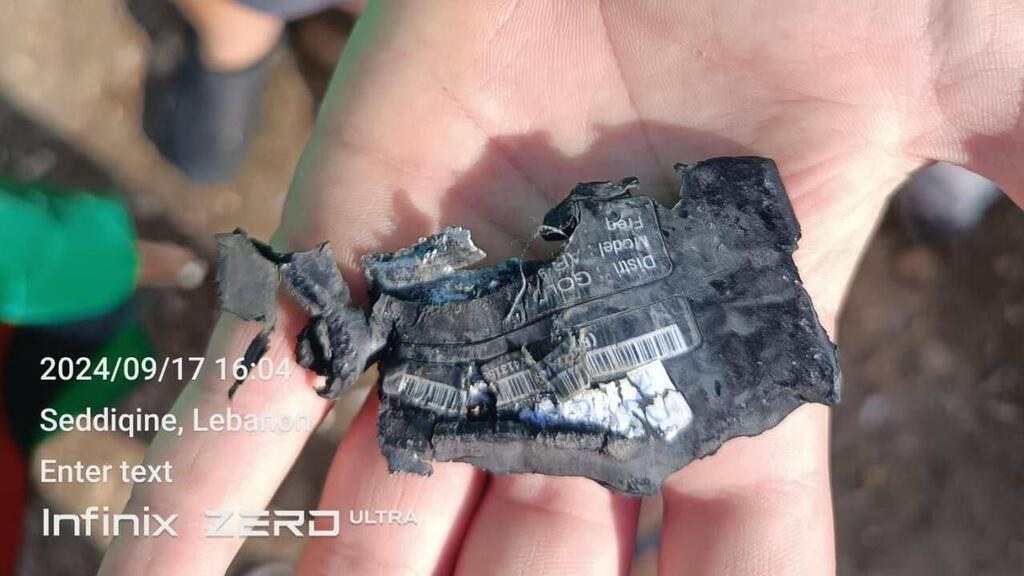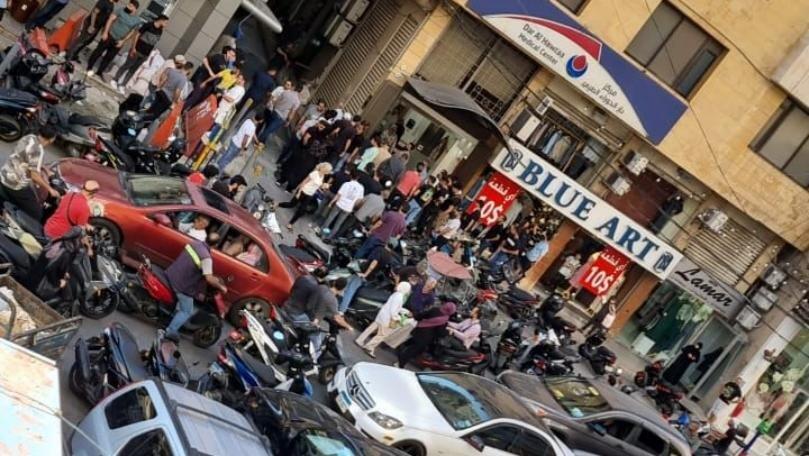Getting your Trinity Audio player ready...
Thousands injured after pager explode across Lebanon
Reports in Lebanon indicated that at least 3,000 people have been hospitalized in Lebanon, around 200 of them in critical condition, and nine people have been confirmed dead in a spree of pager blasts across the country.
The pagers that detonated were the latest model brought in by Hezbollah in recent months, three security sources told Reuters. Security sources told Al Hadath that the devices had been recently distributed to the terror group's operatives.
Sources in Saudi Arabia reported casualties among senior Hezbollah figures. Initially, Hezbollah did not attribute the incident to any party, but later, pointed a finger at Israel and vowed retaliation.
"After reviewing the facts, we hold the Israeli enemy responsible for this attack, which harmed civilians and resulted in deaths and injuries," the statement read.
In its initial response shortly after the incident, the group wrote, "Around 3:30 p.m., several pager devices used by operatives in various Hezbollah units and institutions exploded. A child was killed, and two 'brothers' (operatives) along with many others were seriously injured."
Hezbollah added that its officials are investigating the cause of the simultaneous explosions, and that medical teams are treating the injured at hospitals across Lebanon.
"We pray for mercy for the dead and for the recovery of the injured," the statement said, warning Lebanese citizens to "beware of rumors and false information that serve the enemy's psychological warfare, especially amid threats of changes in the northern region."
The group assured that Hezbollah is "fully prepared to defend Lebanon on all levels."
A senior Hezbollah source told Reuters that Hezbollah chief Hassan Nasrallah was not harmed.
Meanwhile, the IDF launched a wave of strikes on Hezbollah facilities in the towns of Ayta ash-Shaab and Khiam in southern Lebanon.
Prime Minister Benjamin Netanyahu, Defense Minister Yoav Gallant and top defense officials were holding consultations at the Defense Ministry headquarters in Tel Aviv.
Additionally, opposition-affiliated Syrian news outlet Voice of the Capital reported a car explosion in Damascus, allegedly caused by the detonation of a communication device belonging to a Hezbollah operative.
Similar communication devices exploded among Hezbollah members at various locations across Lebanon. According to Sky News Arabia, citing Syrian media and sources affiliated with Iran’s Revolutionary Guard, seven Hezbollah operatives injured by communication device explosions in Syria were evacuated to hospitals.
Sources told The New Arab that "dozens of Hezbollah members were injured in the explosions across most Syrian provinces."
Al Jazeera, citing Syrian media, reported that 11 Hezbollah members were critically wounded in explosions in the Damascus countryside.
Lebanese Information Minister Ziad Makary condemned the incident as an "Israeli attack." "We call on the United Nations to take responsibility for this aggression. It is a violation of Lebanon’s sovereignty. The Lebanese government has reached out to concerned nations and the UN to hold them accountable," he said.
According to Lebanon's MTV network, several of the injured were transferred to Syria, with reports indicating that "a message was received on the device before the explosion."
The Wall Street Journal quoted a Hezbollah official who speculated that "malicious software" might have caused the devices to overheat and explode. Some operatives reportedly noticed their communication devices were overheating and discarded them before they detonated.
Lebanon's LBCI network reported that the breach may have originated in the devices' batteries, causing an overload and a rise in temperature, which led to the explosions. The extent of the damage to the device's owner depended on where the device was being held.
A source close to Hezbollah told the Lebanese newspaper An-Nahar that Mehdi, the son of Hezbollah MP Ali Ammar, was among those killed. Al Hadath reported that the son of senior Hezbollah official Hassan Fadlallah was also injured in the incident.
Meanwhile, reports indicate that ambulances are still transporting dozens of injured individuals to hospitals. A senior Hezbollah official told Al Arabiya, "The number of casualties is rising rapidly, making it difficult to count."
The governor of Baalbek, Bashir Khader, told The New Arab, "We don’t yet have data on the total number of injured. I’ve visited two hospitals so far, and each has around 80 injured. More cases are arriving. Most injuries are to the hands or hips, and people have lost fingers."
Speaking to Lebanese newspaper An-Nahar, Communication consultant Amer Tabesh explained that the devices, dating from the 1990s, are part of Hezbollah’s network for transmitting a limited number of encrypted "codes" and messages.
He noted that while different countries and organizations use the device, it is distinct from a standard walkie-talkie because it transmits coded written messages rather than voice communications. Tabesh speculated that the explosions were caused by the device's battery, which may have detonated due to overuse beyond its capacity.
A Hezbollah official admitted to Qatari newspaper The New Arab that "Israel breached the organization's communication devices and detonated them." He described the breach as "serious and under investigation," adding that there were casualties but no fatalities.
Videos circulating on social media captured scenes of chaos, with panicked crowds filling the streets and hospitals overwhelmed by casualties. Footage showed injured victims lying in hospital corridors, many suffering from severe wounds.
Shortly after the incident, Lebanon’s Ministry of Health urged citizens possessing such devices to "immediately dispose of them." The ministry also called on all staff to "report urgently to their workplaces."
Lebanese Prime Minister Najib Mikati instructed the health minister to "mobilize all resources to treat the injured."
Iran's Mehr news agency reported that Iranian Ambassador to Lebanon Mojtaba Amani was also injured by a pager explosion. The New Arab said that Amani suffered facial injuries. There was no danger to his life.






